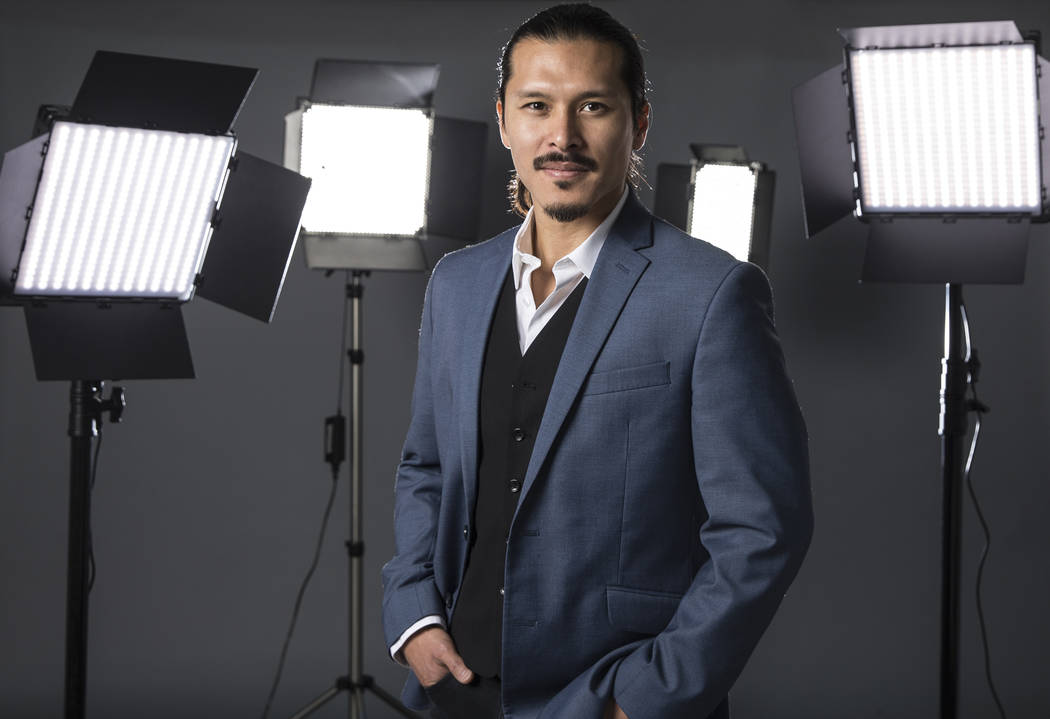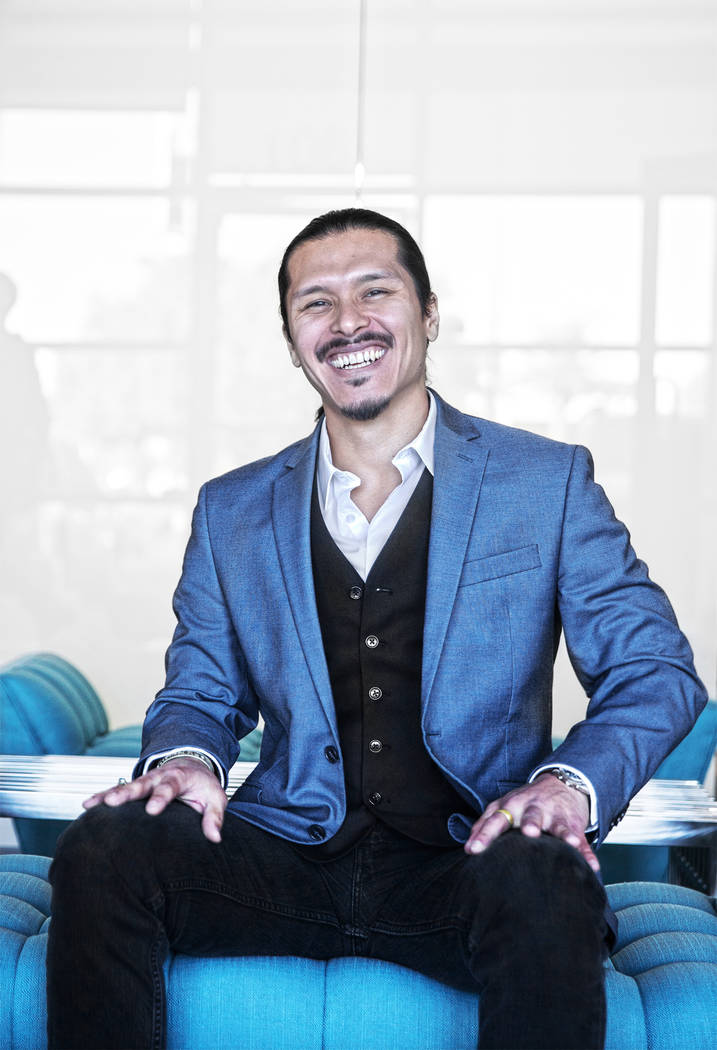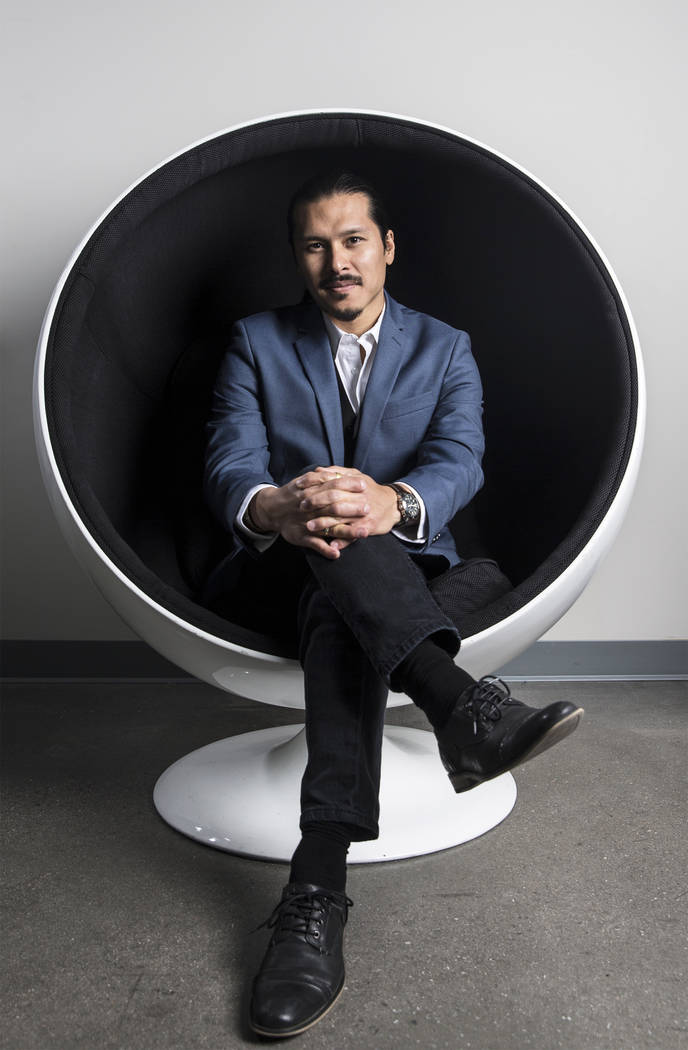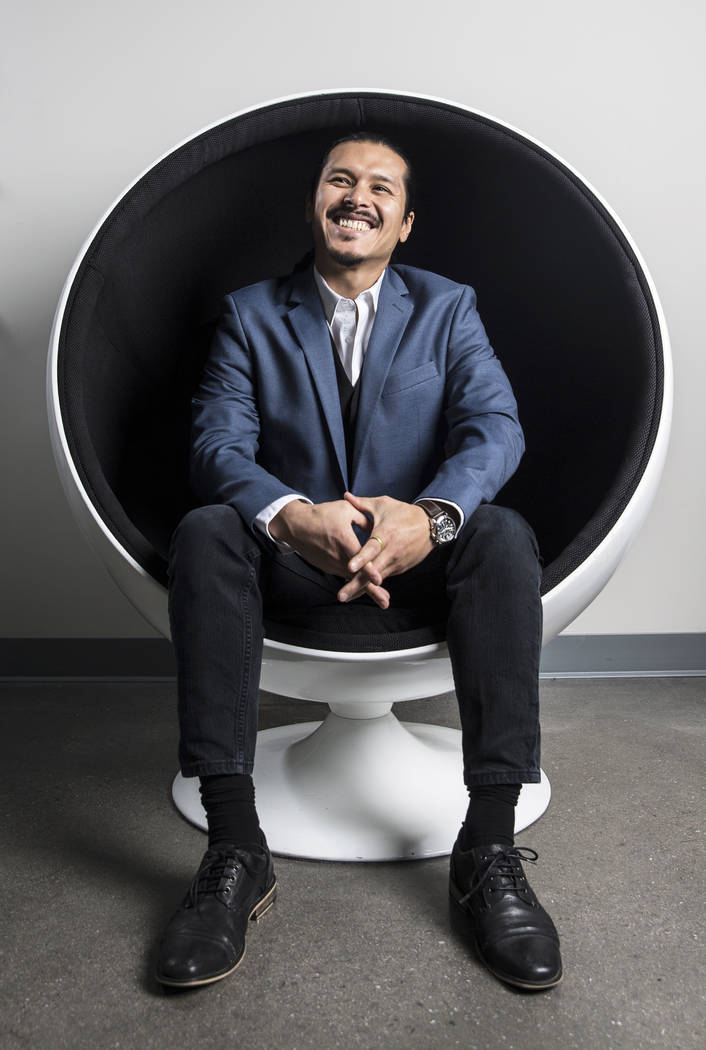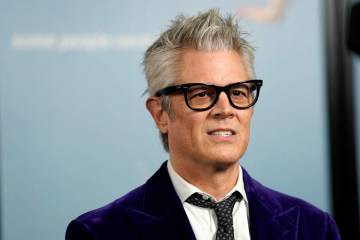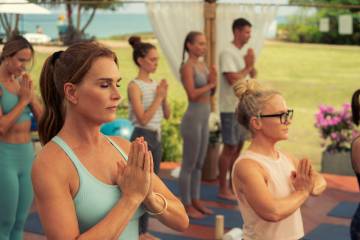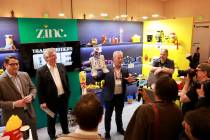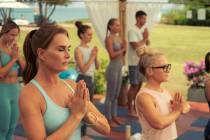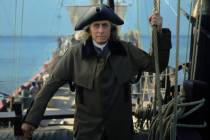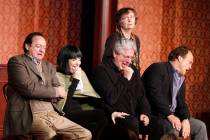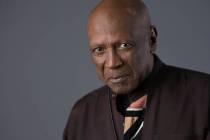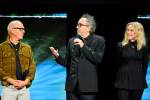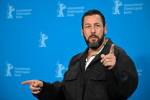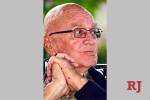Hermon Farahi talks about what motivates him as a filmmaker
Vegas Voices is a weekly series highlighting notable Southern Nevadans.
If not for his “When They Awake” co-director, PJ Marcellino, Henderson-based filmmaker Hermon Farahi would be the cinematic equivalent of a one-man band.
The documentary about Canada’s modern indigenous music scene also credits Farahi for director of photography, editor, camera supervisor, lighting supervisor, sound supervisor, sound effects, visual effects, post-production coordinator, editor, colorist and grip.
The film, which focuses on music ranging from traditional native drums to EDM and throat singing to hip-hop, was a three-year labor of love for Farahi, who moved to the valley from the Washington, D.C., area when he was in third grade.
“I saw documentaries and film as a medium as one of the most effective and powerful ways of sharing stories,” he says of his fascination with the art form. “And when we share our stories, we connect with people on a human level. We connect with people on an emotional level.”
After graduating from Green Valley High School and UNLV, Farahi studied anthropology, international development and documentary filmmaking at George Washington University before returning to Henderson to take over his father’s printing company. Farahi, 34, ended up turning it into Circle Group, a creative services company focusing on films and branded content.
In celebration of Native American Heritage Month, Farahi will host free public screenings of “When They Awake” at 6 p.m. Monday in the NSE Auditorium at Nevada State College and 6 p.m. Nov. 28 in CBC-A 106 at UNLV.
Review-Journal: When did you first know you wanted to be a filmmaker?
Farahi: The documentary that kind of ignited me as a young person was a film called “Children Underground.” It was a film about homeless children living in the subways (of Bucharest, Romania). … That to me was such a powerful film, and I said, “You know what? I have to make documentary films.” This is such a powerful medium.
Your dad ran a printing company. It’s a solid, quantifiable means of income. What was his reaction when you told him you wanted to study cultural anthropology?
(Laughs) Well, I was lucky enough to have parents that were very supportive. And from a young age, they made sure I had a commitment to social justice as well.
You’re a first-generation American. Your mother is Korean, and your father is Persian. How big of a role does your heritage play in your interest in cultural anthropology?
I think it plays a fundamental role, to the point where, like, I think as a young person, I was by nature almost an anthropologist. I was like a little anthropologist running around trying to figure out my place in the world. Carrying these hyphenated identities as a young person, it can be confusing, because you’re not quite fitting into one particular category.
What was it about this story that made you want to tell it?
We were working with a music education project which, over the course of a year, would teach these children, mainly (indigenous) junior high students, how to compose their own symphony. … I followed that story for a year. And it’s a great, feel-good story. But I started realizing that there’s a greater story here to be told, and music is the vehicle by which people are telling these stories.
Why was it important for you to present the film at schools here?
My commitment is also to making sure this film is seen by young people, who can be especially impacted by the message. … You make a film like this, you don’t really expect to make money as a documentary filmmaker. You do it for passion. And you do it wanting to get the message out. And that’s exactly what I’m trying to do this month as part of Native American Heritage Month.
“Wind River” really opened a lot of eyes to the plight of modern indigenous peoples. Why do you think stories like that are so rarely told?
There’s a lack of stories being told that represent minority voices in our media. And indigenous people are one of many of these communities that are underrepresented in media, and in film and television and music and art. I think a lot of communities of color face this same type of predicament where their stories are not considered “viable” I guess. … There’s that market logic that kind of dictates what stories often are told or not told. I think that’s changing, even in how Hollywood is casting their films today. You’re starting to see a lot more equitable representation in films.
In addition to some of these remote communities in Northwest Canada, your filmmaking has brought you to Mount Everest and Kenya. You’ve followed refugees in North Africa and helped protect ancestral lands in Guam. What other places or cultures are you interested in exploring on film?
I was lucky enough to have these opportunities to experience so many different cultures and tell stories and be this kind of, hopefully, a bridge builder across cultures. But my immediate focus now is on our country and on all those stories that need to be told here in America. As part of that, I’m running for Congress (to represent Nevada’s 3rd District). As a storyteller and as a filmmaker, I want to tell those stories and amplify those voices of Americans who are struggling today. There are so many stories of people who are one paycheck away from medical bankruptcy. There are so many stories of veterans facing homelessness. These are injustices that need to be resolved. We need to find solutions for them. That’s really where I’m putting my energy as a storyteller now.
Getting to know: Hermon Farahi
What’s your favorite thing about living in Las Vegas? “I think it’s the natural beauty around us. You’re 30 minutes from Red Rock. You’re 30 minutes from Valley of Fire. You’re 30 minutes from Mount Charleston.”
Where’s your favorite place to get away? “I just have to go to Red Rock. That’s it. I go up to Calico Basin, get on top of those red rocks and just meditate up there.”
Do you have any daily rituals? My daily ritual is having a cup of ceremonial-grade matcha green tea with a traditional whisk and all.
What is it about music that appeals to you? “Music is like my heartbeat. I’m a drummer. I’m literally just drumming all day long.”
What’s your most prized possession? “I don’t like to possess things. I don’t believe that material objects have intrinsic worth. I believe people have intrinsic worth. And I don’t like to possess people, but I feel like my friends and family and the community, that’s the most valuable thing. Without that, what are you? Who are you?”
Contact Christopher Lawrence at clawrence@reviewjournal.com or 702-380-4567. Follow @life_onthecouch on Twitter.



